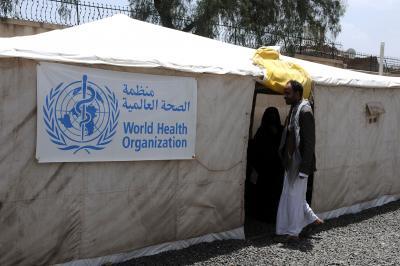Global Cholera Crisis Continues: 31 Countries Reported Outbreaks In 2025, Says WHO
The report showed that despite treatment being available, deaths due to the disease rose by 50 per cent in 2024 compared to 2023. For the second consecutive year, more than 6000 people have died from the disease, while cases rose by 5 per cent.
While the numbers are alarming, they are underestimates of the true burden of cholera, stated the report
Cholera is a disease caused by the bacterium Vibrio cholerae, which spreads rapidly through faeces-contaminated water.
“Conflict, climate change, population displacement, and long-term deficiencies in water, sanitation, and hygiene infrastructure continue to fuel the rise of cholera," the WHO report said.
In 2024, 60 countries reported cholera cases -- an increase from 45 in 2023.
Africa, the Middle East, and Asia continued to bear the global burden of the disease and collectively accounted for 98 per cent of all reported cases.
“The scope of cholera outbreaks continued to expand in 2024, with 12 countries each reporting more than 10,000 cases, seven of which experienced large outbreaks for the first time in the year,” the report said.
“To combat cholera, governments, donors, and communities need to ensure people have access to safe water and hygiene facilities, have accurate information on how to protect themselves, and have rapid access to treatment and vaccination when there are outbreaks. Strong surveillance and diagnostics will help guide these responses. Further investment in vaccine production is also needed,” it added.
Meanwhile, the WHO had, in early 2024, prequalified a new and innovative oral cholera vaccine (OCV) Euvichol-S.
Its addition helped to maintain average stockpile levels above the emergency threshold of 5 million doses for the first 6 months of 2025.
However, due to the continued high demand for OCV, the temporary change from a two-dose to a single-dose regimen remained in effect throughout 2024 and into 2025.
Requests for 61 million OCV doses were made to the global stockpile in 2024, and a record 40 million were approved for emergency use in reactive, single-dose campaigns in 16 countries. However, supply constraints continued to outstrip demand in 2024, and into 2025, the WHO said.

Legal Disclaimer:
MENAFN provides the
information “as is” without warranty of any kind. We do not accept
any responsibility or liability for the accuracy, content, images,
videos, licenses, completeness, legality, or reliability of the information
contained in this article. If you have any complaints or copyright
issues related to this article, kindly contact the provider above.
Most popular stories
Market Research

- What Does The Europe Cryptocurrency Market Report Reveal For 2025?
- United States Kosher Food Market Long-Term Growth & Forecast Outlook 20252033
- Utila Triples Valuation In Six Months As Stablecoin Infrastructure Demand Triggers $22M Extension Round
- Meme Coin Little Pepe Raises Above $24M In Presale With Over 39,000 Holders
- FBS Analysis Highlights How Political Shifts Are Redefining The Next Altcoin Rally
- 1Inch Becomes First Swap Provider Relaunched On OKX Wallet






















Comments
No comment